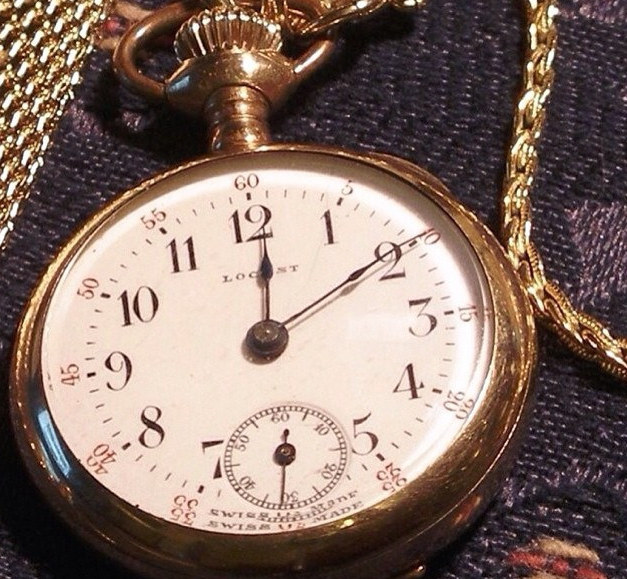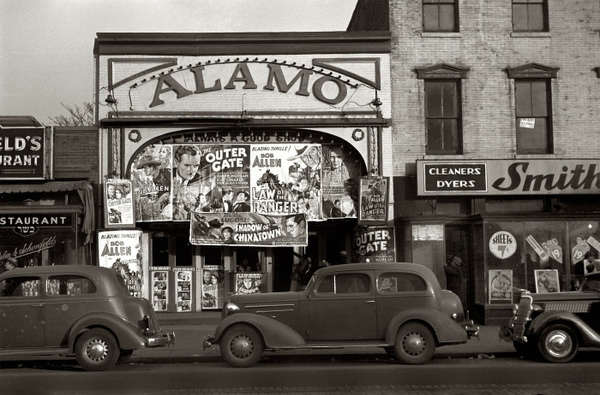Conversational Hindi: Common Questions and Answers (Part 3) Posted by Rachael on May 31, 2018 in Uncategorized
इस ब्लॉग के तीसरे हिस्से को आपका स्वागत है!
Welcome to the third part of this series on conversational Hindi! I’m writing these posts in an effort to provide more access to and guidance on colloquial, rather than formal, Hindi as it is more useful for everyday conversation. As always, thanks for reading and please suggest any further topics you would like me to discuss!
What time is it?
- कितने बजे हैं ? / Kitne baje hain? (this is the most common way of saying this)
- क्या बजा है ? / Kyaa bajaa hai?
- क्या टाइम हुआ? / Kyaa time huaa?
Responses / जवाब
- दस बजे हैं / Das baje hain (It’s 10 o’clock).
- साढ़े चार बजे हैं / Sarhe chaar baje hain (It’s 4:30 / half past 4). *Note that साढ़े only works with numbers 3 and up; so you CANNOT say साढ़े एक बजे हैं / Sarhe ek baje hain (It’s 1:30), but you CAN say साढ़े तीन बजे हैं / Sarhe teen baje hain (It’s 3:30).
- पौन बजा है / Paun bajaa hai (It’s 12:45).
- सवा बजा है / Savaa bajaa hai (It’s 1:15).
- डेढ़ बजा है / Derh bajaa hai (It’s 1:30).
- पौने दो बजे हैं / Paune do baje hain (It’s 1:45).
- ढाई बजे हैं / Dhaai baje hain (It’s 2:30).
- एक मिनट, मैं घड़ी / फ़ोन (को) देखती / देखता हूँ / Ek minute, main ghari / phone (ko) dekhti / dekhtaa huun (Just a minute, let me check my watch / phone).
- सॉरी, मुझे नहीं पता / Sorry, mujhe nahin pataa / Sorry, I don’t know. *Another way of saying “sorry” that you may have heard of is (आप) माफ़ कीजिये/(तुम) माफ़ करो / Maaf kijiye/maaf karo; this is rather formal and is not used prevalently and in many situations the way you would use “sorry” in American English.
| Hindi Word | Roman Transliteration | English Translation |
|---|---|---|
| बजना | Bajnaa | To chime, resound |
| पौन, पौना | Paun, paunaa | Three-quarters. *पौन is used with numbers that are considered SINGULAR (such as 12:45). पौना is used with any number considered plural and usually changes to masculine, plural to reflect this (anything from 1:45 upwards). |
| सवा | Savaa | One and a quarter |
| डेढ़ | Derh | One and a half. This can only be used to express the time 1:30. |
| साढ़े | Saarhe | + 1/2 (can only be used with numbers 3 and up) |
Can I help you? / Do you need any help?
- मैं आपकी/तुम्हारी मदद कर सकती / सकता हूँ ? / Main aapki/tumhaari madad kar sakti/sakta huun? / (Can I help you?)
- आपको / तुमको / तुम्हें मदद चाहिये ? / Aapko / tumko / tumhe madad chaahiye? (Do you need help)? *Remember that तुमको and तुम्हें mean the same thing: तुम (you, informal) + को = to you, the only difference is that तुम्हें is a shortened and more colloquial form of तुमको. आप + को has no shortened form.
- आपको / तुमको / तुम्हें मदद की ज़रूरत है ? / Aapko / tumko / tumhe madad ki zaroorat hai? (Do you need help)?
Responses / जवाब
- नहीं, शुक्रिया/थैंक यू, मैं सिर्फ़ देख रही/रहा हूँ (Nahin, shukriyaa, main sirf dekh rahi/rahaa huun) / No, thank you, I’m just looking.
- हाँ, आपके पास यह है ज़्यादा बड़े/छोटे साइज़ में ? (Haan, aapke paas yah hai zyaada bare/chote size me) / Yes, do you have this in a bigger/smaller size?
- हाँ, मैं इसे कहाँ पहन के देख सकती/सकता हूँ ? / हाँ, मैं इसे कहाँ ट्राय कर सकती/सकता हूँ ? (Haan, main ise kahaan pehen ke dekh sakti/saktaa huun / Haan, main ise kahaan try kar sakti/sakta huun) / Yes, where can I try this on?
- हाँ, आप/तुम मुझे इसका दाम बता सकते/सकती हैं/हो ? / हाँ, इसका दाम क्या है? / हाँ, यह कितने का है? (Haan, aap/tum mujhe iskaa daam bataa sakte/sakti hain/ho? / Haan, iskaa daam kyaa hai? / Haan, yah kitne kaa hai) / Yes, can you tell me how much this costs? / Yes, what is the price of this? / Yes, how much is this?
- हाँ, मुझे एक चीज़ चाहिये जो पाँच सौ रुपये से कम है । / (Haan, mujhe ek cheez chaahiye jo paanch sau rupaye se kam hai) / Yes, I want something that is less than 500 rupees.
How are you?
- आप/तुम कैसे/कैसी हैं/हो?
- क्या हाल (चाल) है? (How’s it going?, casual)
Responses / जवाब
- बढ़िया, सब कुछ ठीक है / (Barhiyaa, sab kuch thik hai) / Excellent, everything’s great.
- ठीक हूँ, और आप / तुम / (Thik huun, aur aap/tum) / I’m fine, and you?
- ठीक-ठाक / (Thik thaak) / (Things are) okay.
- (मैं) शिकायत नहीं कर सकती/सकता / (Main) shikaayat nahin kar sakti/saktaa) / Can’t complain.
- सच में आप/तुम जानना चाहती/चाहते हैं/हो? / (Sach me aap/tum jaananaa chaahti/chaahte hain/ho) / Do you actually want to know? *It’s more socially acceptable to give a negative and/or detailed response to this question than it is in American culture, where we are supposed to be all sunshine and rainbows all the time, but there are limits depending on whom you’re speaking to and how well you know them.
- बूरी हालत में हूँ / (Buri haalat me huun) / I’m in a bad way. *If you want to be honest, go for it.
How was your day?
- आप का / तुम्हारा दिन कैसा रहा ? / Aap ka / tumhaaraa din kaisaa rahaa?
Responses / जवाब
- बढ़िया! / (Barhiyaa) / Excellent!
- कुछ खास नहीं हुआ / (Kuch khaas nahin huaa) / Nothing special happened.
- बहुत काम किया मैंने / (Bahut kaam kiyaa maine) / I got a lot of work done.
- बहुत व्यस्त/बिज़ी था / (Bahut vyast/busy thaa) / It was very busy.
- अरे बहुत खराब था / (Are, bahut kharaab thaa) / Ugh, it was very bad.
Did you like the movie?
- आपको /तुम को / तुम्हें फ़िल्म कैसी लगी ? / Aap ko/tum ko/tumhe film kaisi lagi? (This means more like “How did you find the film?”)
- आपको / तुम को / तुम्हें फ़िल्म पसंद आयी ? / Aapko/tum ko/tumhe film pasand aayi? (Did you like the film?)
- आपको / तुम को / तुम्हें फ़िल्म अच्छी लगी ? / Aapko/tum ko/tumhe film aachi lagi? (Did you like the film?)
- फ़िल्म के बारे में क्या ख्याल है? / Film ke baare me kyaa khyaal hai? (What are your thoughts/ideas/opinions on the film?)
Responses / जवाब
- अरे, कमाल की फ़िल्म थी / बहुत अच्छी फ़िल्म थी / (Are, kamaal ki film thi / bahut acchi film thi) / Oh, it was a wonderful/very good film. *पिक्चर/picture is also used for film/movie.
- बहुत खराब थी / (Bahut kharaab thi) / It was very bad.
- ठीक-ठाक, न अच्छी, न बूरी / (Thik thaak, na acchi, na buri) / It was ok, not bad or good.
- अरे, एक नंबर की पिक्चर है / सबसे बेस्ट फ़िल्म है / फिल्में जो मैंने देखी हैं, उन में से सब से अच्छी है! / (Are, ek number ki picture hai / sabse best film hai / filme jo maine dekhi hain, un me se sab se acchi hai!) / Oh, it was a #1 picture / It is the best film / It’s among the best I’ve ever seen!
- नहीं, जब उसकी रीलिज़ हुई, उसको लेकर बहुत तमाशा था लेकिन इतनी अच्छी नहीं थी / (Nahin, jab uski release hui, usko lekar bahut tamaashaa thaa lekin itni acchi nahin thi) / No, when it was released, there was a lot of hype about it, but it wasn’t that good.

Keep learning Hindi with us!
Build vocabulary, practice pronunciation, and more with Transparent Language Online. Available anytime, anywhere, on any device.
Share this:






